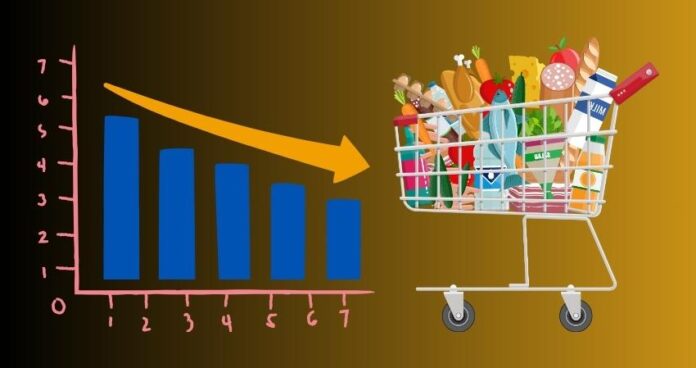The Sensitive Price Indicator (SPI) for the week ending February 20, 2025, recorded a 0.27% week-on-week (WoW) increase, reflecting mild inflationary pressures. On a year-on-year (YoY) basis, SPI rose 1.2%, indicating a more stable trend compared to mid-2024, when inflation was significantly higher.
The weekly increase was primarily driven by price hikes in essential food items, including bananas (11.89%), eggs (7.80%), chicken (4.47%), garlic (1.08%), sugar (0.65%), beef (0.52%), and mutton (0.22%).
However, tomatoes (-2.81%), diesel (-1.49%), onions (-1.16%), potatoes (-0.90%), and petrol (-0.36%) recorded price declines, providing some relief. Among the 51 monitored items, 11 items saw price increases, 16 registered declines, while 24 remained unchanged.
On a YoY basis, notable price surges were observed for ladies’ sandals (75.09%), pulse moong (28.07%), powdered milk (25.84%), beef (22.47%), potatoes (20.71%), and vegetable ghee (16.41%). In contrast, tomatoes (-58.82%), onions (-49.86%), wheat flour (-37.05%), and diesel (-8.07%) saw significant reductions.
According to Arif Habib Limited, headline inflation for February 2025 is expected to decline to a 112-month low of 2.2% YoY, down from 2.4% in January 2025. On a month-on-month (MoM) basis, inflation is projected to decrease 0.21%, marking the lowest rate since October 2015.
For the first eight months of FY25 (8MFY25), average inflation is estimated at 6.04%, a sharp decline from 28% recorded in 8MFY24. Food inflation is expected to fall 1.1% MoM and 2.6% YoY, driven by price reductions in wheat flour (-1.6%), eggs (-10.8%), potatoes (-22.2%), onions (-24.9%), and tomatoes (-51.7%).
The housing and energy index is projected to decline 0.3% MoM, mainly due to a 1.3% drop in electricity prices, reflecting the impact of a negative fuel cost adjustment (FCA) of Rs1.23 per kilowatt-hour for December 2024, compared to a negative FCA of Rs0.76 in the previous month.
Meanwhile, the transport index is expected to rise 1.1% MoM, following increases in petrol and diesel prices, though on a YoY basis, transport inflation remains 0.3% lower due to a high base effect from the previous year.




